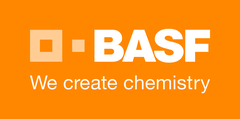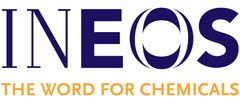FEE – Early Detection and Decision Support for Critical Situations in a Production Environment
Project information
Project duration: 2014-2017
Coordinator: ABB AG, Forschungszentrum Deutschland, Dr. Guido Sand
Project partners: ABB AG, RapidMiner GmbH, Universität Kassel - Fachgebiet Mess- und Regelungstechnik, Universität Kassel - Fachgebiet Wissensverarbeitung, Technische Universität Dresden - Professur für Prozessleittechnik
Application partners: BASF SE, PCK Raffinerie, INEOS Köln
Website: www.fee-projekt.de
Project Desrciption
Modern process plant as they are used in the chemical, pharmaceutical or building materials industry have a high automation level which only enables a continuous economical operation. This high automation level results in unexperienced operators which are not able to gain experience about the dynamic behavior of the plant and the industrial procedures. This empirical knowledge is missing during unexpected operating conditions, so that the operator is then overwhelmed by variety of alarms and reports. Such critical situations may cause danger for people and environment and damage to machines and plants.
Therefore, it is becoming more important to support the operator of highly automated plant by assistance systems for real-time analysis and Ad-hoc-decision finding in critical situations. However, previous systems based on theoretical process models or manual knowledge acquisition could not be enforced due to the high creation and adaption cost. Instead, continuous adaption of alarm limits and several filter for alarm reduction are dominating in practical application. It will be also investigated if visual concepts may enable the plant operators an easier orientation during critical situations. All of these approaches are not able to derive real actionable recommendations for the operator by a smart analyzation of the available data.
The joint project FEE set itself the goal to approach these problems with BigData techniques. For that the recorded, heterogenic data of sensors, from engineering and other databases, from process information management systems (PIMS) as well as shift books and operating instructions are integrated in a Data Warehouse. Based on that, new real-time methods will be developed by using specific techniques for the analysis of extensive and heterogenic data, where historical data is related to the current context. For this purpose, a special architecture with several levels will be developed to execute long-running calculations, process new incoming data and transfer data to the application. Within the scope of the intended software solution, existing data will be analyzed and statistical methods will be developed, which, in the sense of a learning system, will be adapted over time to new data and events. The models generated in this way are permanently used for decision support. On the basis of the desired results, events, which may lead to critical situations, should be detected early and proactive action alternatives should be pointed out.
For this, Operator should be warned early by Likelihood-alarms and be supported by interactive assistance functions for Ad-hoc-Analysis as well as for the development of intervention strategies. Due to the involvement of practical users from the chemical and petroleum industry, specific applications scenarios will be identified, which are used to evaluate the developed architecture and methods. Furthermore, new software components for decision support for critical situation in a productive environment will be realized prototypicaly. Additionally, benchmarks will be provided so that universities and businesses, which are active in the field of Big Data, can test their own concepts practically in comparison and due to that improve their technological competitiveness. Furthermore, the standardization of data formats and interface shall be promoted through the participation in business- related committees.






